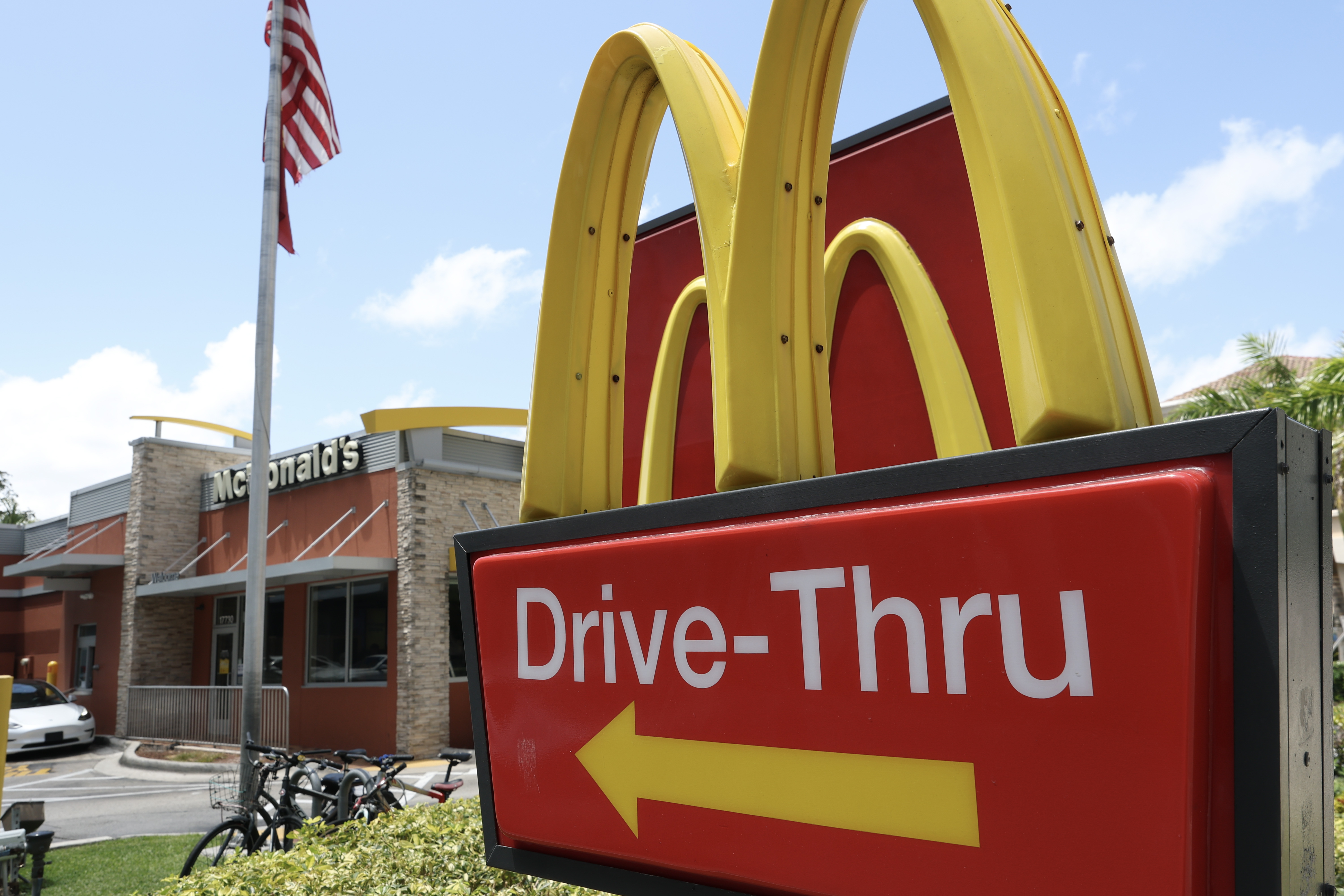Resume Mistake Alert: Ex-Visa HR Exec Reveals All!
Avoid the "Jumpy" Resume: HR Exec's Crucial Mistake to Sidestep
Introduction: Decoding the Resume Secrets of a Visa HR Veteran
Landing your dream job is tough, right? It feels like you're sending your resume into a black hole, hoping it somehow emerges on the other side as a golden ticket. Well, what if you could peek behind the curtain and see what hiring managers really look for? Jolen Anderson, a seasoned HR professional with decades of experience, including 13 years at Visa and currently the chief people and community officer at BetterUp, is giving us that peek. She’s seen countless resumes, and she's sharing a critical mistake that can sink your chances. So, listen up – this could be the career advice you’ve been waiting for!
The "Jumpy" Resume: A Major Red Flag
Anderson's biggest resume red flag? A “jumpy” resume. What does that mean exactly? It's when your work history looks like a game of hopscotch, with short tenures at various companies without any clear explanation. Think of it like this: a potential employer sees a pattern of bouncing from job to job and wonders, "Will this person stick around, or will they be looking for the next shiny object in six months?" Consistency and longevity are highly valued in the corporate world.
Why Longevity Matters to Employers
Employers invest time and resources into training and developing their employees. A history of short-term employment suggests a lack of commitment and a potential waste of their investment. Think of it as planting a tree – you want to see it grow and flourish, not wither and die after a few months.
Articulating Your Impact: Show, Don't Just Tell
Beyond the "jumpy" factor, Anderson highlights another crucial resume mistake: the failure to clearly articulate your impact. It's not enough to list your responsibilities; you need to demonstrate the value you brought to each role. In other words, “What did you DO?” You need to showcase how you made a difference.
Deciphering the Impact Equation: Responsibility + Action = Value
Anderson stresses the importance of understanding your job, your responsibilities, and how you added value. This can be broken down into a simple equation: Responsibility + Action = Value. Let's dive deeper:
Breaking Down Your Responsibilities
Clearly outline your key responsibilities in each role. Don’t just list generic duties; be specific and tailor them to the actual tasks you performed. For instance, instead of saying "Managed social media accounts," say "Managed social media accounts across three platforms, increasing engagement by 25%."
Highlighting Your Actions
Describe the actions you took to fulfill your responsibilities. What steps did you take to achieve your goals? What innovative approaches did you use? This is where you show your initiative and problem-solving skills.
Quantifying Your Value
This is the most critical part. How did your actions benefit the company? Did you increase sales, reduce costs, improve efficiency, or enhance customer satisfaction? Quantify your achievements whenever possible. Numbers speak louder than words. Use metrics, percentages, and dollar amounts to demonstrate your impact.
The "So What?" Test: Ensuring Your Resume Resonates
Before submitting your resume, subject it to the "So What?" test. After reading each bullet point, ask yourself, "So what? Why should the employer care?" If the answer isn't immediately apparent, revise the bullet point to highlight the value you brought to the role.
Transforming Responsibilities into Achievements: Examples that Shine
Let's look at some examples of how to transform generic responsibilities into impactful achievements:
- Instead of: "Managed customer service inquiries."
- Try: "Managed customer service inquiries, resulting in a 15% improvement in customer satisfaction scores and a 10% reduction in complaint resolution time."
- Instead of: "Assisted with marketing campaigns."
- Try: "Assisted with marketing campaigns, contributing to a 20% increase in website traffic and a 12% growth in lead generation."
Addressing the "Jumpy" Resume: Strategies for Explaining Short Tenures
Okay, so you have some short tenures on your resume. Don't panic! There are ways to address this issue without raising red flags. Honesty and transparency are key. Here are a few strategies:
Temporary Positions and Contract Roles
If you held temporary or contract positions, clearly state this on your resume. Employers understand that these roles are inherently short-term.
Layoffs and Company Restructuring
If you were laid off due to company restructuring or downsizing, briefly explain the situation. It's important to be factual and avoid placing blame.
Career Exploration and Finding the Right Fit
Sometimes, a short tenure can be attributed to a genuine search for the right career path. If this is the case, you can frame it as a learning experience that helped you gain valuable skills and insights. However, avoid making this a recurring theme on your resume.
Tailoring Your Resume: Speak the Language of the Job Description
One of the most effective ways to demonstrate your impact is to tailor your resume to each specific job description. Identify the key skills, qualifications, and requirements mentioned in the job posting, and highlight how your experience aligns with those needs. Think of your resume as a targeted advertisement – you're showcasing why you're the perfect solution to the employer's problem.
Keywords are King: Optimizing Your Resume for Applicant Tracking Systems (ATS)
In today's digital world, many companies use Applicant Tracking Systems (ATS) to screen resumes. These systems scan for specific keywords related to the job description. Therefore, it's crucial to incorporate relevant keywords throughout your resume to ensure it passes the initial screening process. Sprinkle them naturally and avoid keyword stuffing, which can be penalized.
The Power of Action Verbs: Injecting Energy and Enthusiasm into Your Resume
Use strong action verbs to describe your accomplishments and responsibilities. Instead of saying "Responsible for," try "Managed," "Led," "Developed," "Implemented," or "Achieved." Action verbs add energy and enthusiasm to your resume, making it more engaging and impactful.
Proofread, Proofread, Proofread: Eliminating Errors and Typos
This may seem obvious, but it's worth repeating: proofread your resume carefully for any errors or typos. Even a small mistake can create a negative impression and undermine your credibility. Ask a friend or family member to review your resume as well – a fresh pair of eyes can often catch errors you may have missed.
Beyond the Resume: Networking and Building Connections
Remember, your resume is just one piece of the job search puzzle. Networking and building connections are equally important. Attend industry events, connect with professionals on LinkedIn, and reach out to people in your network who can provide guidance and support. The more connections you make, the greater your chances of landing an interview.
Continuous Improvement: Keeping Your Resume Up-to-Date
Your resume is a living document that should be updated regularly to reflect your latest skills, experiences, and accomplishments. Don't wait until you're actively searching for a job to update your resume. Make it a habit to review and revise it every few months.
The Cover Letter Advantage: Adding a Personal Touch
While a well-crafted resume is essential, a compelling cover letter can give you an extra edge. A cover letter allows you to personalize your application, highlight your passion for the role, and explain why you're a great fit for the company culture. It's your opportunity to tell your story and make a lasting impression.
Conclusion: Mastering the Art of the Resume
So, there you have it – the crucial resume mistakes to avoid, according to an ex-Visa HR exec. Remember to showcase consistency, articulate your impact, tailor your resume to each job description, and proofread meticulously. By mastering these principles, you'll significantly increase your chances of landing your dream job. Good luck!
Frequently Asked Questions (FAQs)
- Q: How far back should my resume go?
A: Generally, aim to include the last 10-15 years of relevant work experience. Focus on the most recent and impactful roles, and avoid including outdated or irrelevant information.
- Q: Should I include a photo on my resume?
A: In most cases, it's best to avoid including a photo on your resume, unless it's specifically requested or standard practice in your industry or region. Focus on showcasing your skills and experience instead.
- Q: What's the ideal length for a resume?
A: Aim for a one-page resume if you have less than 10 years of experience. If you have more extensive experience, a two-page resume is generally acceptable. However, prioritize quality over quantity and ensure that every bullet point adds value.
- Q: Should I list references on my resume?
A: It's not necessary to list references directly on your resume. Instead, you can simply state "References available upon request" at the end. Be sure to have a list of professional references ready to provide when requested.
- Q: How can I quantify my achievements if I don't have specific numbers?
A: Even if you don't have exact metrics, you can still quantify your achievements by using estimations, ranges, or qualitative descriptions. For example, instead of saying "Improved customer satisfaction," you could say "Significantly improved customer satisfaction based on positive feedback and testimonials."


